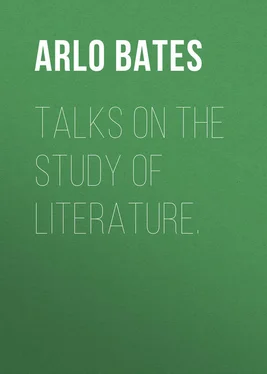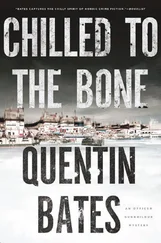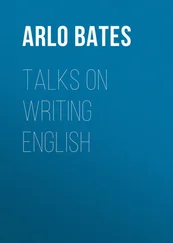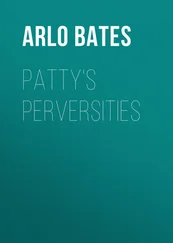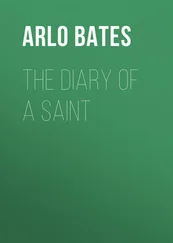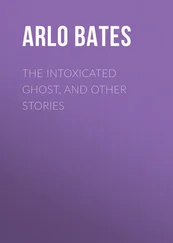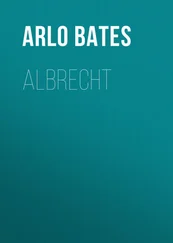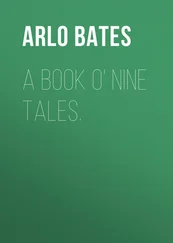Arlo Bates - Talks on the study of literature.
Здесь есть возможность читать онлайн «Arlo Bates - Talks on the study of literature.» — ознакомительный отрывок электронной книги совершенно бесплатно, а после прочтения отрывка купить полную версию. В некоторых случаях можно слушать аудио, скачать через торрент в формате fb2 и присутствует краткое содержание. Жанр: foreign_antique, foreign_prose, на английском языке. Описание произведения, (предисловие) а так же отзывы посетителей доступны на портале библиотеки ЛибКат.
- Название:Talks on the study of literature.
- Автор:
- Жанр:
- Год:неизвестен
- ISBN:нет данных
- Рейтинг книги:5 / 5. Голосов: 1
-
Избранное:Добавить в избранное
- Отзывы:
-
Ваша оценка:
- 100
- 1
- 2
- 3
- 4
- 5
Talks on the study of literature.: краткое содержание, описание и аннотация
Предлагаем к чтению аннотацию, описание, краткое содержание или предисловие (зависит от того, что написал сам автор книги «Talks on the study of literature.»). Если вы не нашли необходимую информацию о книге — напишите в комментариях, мы постараемся отыскать её.
Talks on the study of literature. — читать онлайн ознакомительный отрывок
Ниже представлен текст книги, разбитый по страницам. Система сохранения места последней прочитанной страницы, позволяет с удобством читать онлайн бесплатно книгу «Talks on the study of literature.», без необходимости каждый раз заново искать на чём Вы остановились. Поставьте закладку, и сможете в любой момент перейти на страницу, на которой закончили чтение.
Интервал:
Закладка:
Here might be considered, if there were space, the whole subject of artistic technique; but it is sufficient for our purposes to notice that the test of technical excellence is the completeness with which the means are adapted to the end sought. The crucial question in regard to artistic workmanship is: "Does it faithfully and fully convey the emotion which is the essence of the work?" A work of art must make itself felt as well as intellectually understood; it must reach the heart as well as the brain. If a picture, a statue, a piece of music, or a poem provokes your admiration without touching your sensibilities, there is something radically wrong with the work – or with you.
First of all, then, expression must be adequate. If it is slovenly, incomplete, unskillful, it fails to impart the emotion which is its purpose. We have all sat down seething with excitement and endeavored to get our feelings upon paper, only to discover that our command of ourselves and of technical means was not sufficient to allow us to phrase adequately that which yet we felt most sincerely. It is true that style is in a sense a subordinate matter, but it is none the less an essential one. It is manifestly of little consequence to the world what one has to say if one cannot say it. We cannot be thrilled by the song which the dumb would sing had he but voice.
Yet it is necessary to remember that although expression must be adequate, it must also be subordinate. It is a means and not an end, and the least suspicion of its having been put first destroys our sense of the reality of the feeling it embodies. If an actress in moments of impassioned declamation is detected arranging her draperies, her art no longer carries conviction. Nobody feeling the heart-swelling words of Queen Katharine, for instance, could while speaking them be openly concerned about the effective disposition of her petticoats. The reader of too intricate and elaborate verse, such as the French forms of triolet, rondeau, rondel, and so on, has an instinctive perception that a poet whose attention was taken up with the involved and artfully difficult versification could not have been experiencing any deep passion, no matter how strongly the verse protests that he has. Expression obviously artful instantly arouses suspicion that it has been wrought for its own sake only.
Technical excellence which displays the cleverness of the artist rather than imparts the emotion which is its object, defeats its own end. A book so elaborated that we feel that the author was absorbed in perfection of expression rather than in what he had to express leaves us cold and unmoved, if it does not tire us. The messenger has usurped the attention which belonged to the message. It is not impossible that I shall offend some of you when I say that Walter Pater's "Marius the Epicurean" seems to me a typical example of this sort of book. The author has expended his energies in exquisite excesses of language; he has refined his style until it has become artfully inanimate. It is like one of the beautiful glass flowers in the Harvard Museum. It is not a living rose. It is no longer a message spoken to the heart of mankind; it is a brilliant exercise in technique.
Literature, then, is genuine emotion, adequately expressed. To be genuine it must come from the imagination; and adequate expression is that which in turn reaches the imagination. If it were not that the phrase seems forbiddingly cumbersome, we might, indeed, define literature as being such writings as are able to arouse emotion by an appeal to the imagination.
A sensational story, what the English call a "penny dreadful" or a "shilling shocker" according to the cost of the bundle of cheap excitement, may be an appeal to the emotions, but it aims to act upon the senses or the nerves. Its endeavor is to work by the grossest and most palpable means. It is an assault, so to say, upon the perceptions. Books of this sort have nothing to do with imagination, either in reader or writer. They would be ruled out by all the tests which we have given, since they are not sincere, not convincing, not consistent, not true to life.
One step higher in the scale come romances of abounding fancy, of which "She" may serve as an example. They are clever feats of intellectual jugglery, and it is to the intellectual perceptions that they appeal. Not, it is true, to the intellect in its loftiest moods, but the understanding as distinguished from the feeling. No reader is really moved by them. The ingenuity of the author amuses and absorbs the attention. The dexterity and unexpectedness of the tale excite and entertain. The pleasure experienced in reading these books is not far removed from that experienced in seeing a clever contortionist. To read them is like going to the circus, – a pleasant diversion, and one not without a certain importance to this over-wrought generation. It is amusement, although not of a high grade.
Do not suppose, however, that I am saying that a story cannot have an exciting plot and yet be literature. In the restricted sense in which these lectures take the term, I should say that "The Adventures of Captain Horn," an agreeable book which has been widely read of late, is not literature; and yet "Treasure Island," upon which perhaps to some extent the former was modeled, most certainly is literature. The difference is that while Stockton in "Captain Horn" has worked with clever ingenuity to entertain, Stevenson in "Treasure Island" so vividly imagined what he wrote that he has made his characters human, informed every page with genuine feeling, and produced a romance permanently vital. The plot of those superb masterpieces of adventure, the "D'Artagnan Romances," is as wild, perhaps as extravagant, as that of the marrow-curdling tales which make the fortunes of sensational papers; but to the excitement of adventure is added that unification, that humanization, that perfection of imaginative realism which mark Dumas as a genius.
The difference of effect between books which are not literature and those which are is that while these amuse, entertain, glance over the surface of the mind, those touch the deepest springs of being. They touch us æsthetically, it is true. The emotion aroused is impersonal, and thus removed from the keen thrill which is born of actual experiences; but it depends upon the same passions, the same characteristics, the same humanity, that underlie the joys and sorrows of real life. It is because we are capable of passion and of disappointment that we are moved by the love and anguish of Romeo and Juliet, of Francesca and Paolo. Our emotion is not identical with that with which the heart throbs in personal love and grief; yet art which is genuine awakes emotion thoroughly genuine. Books of sensationalism and sentimentality may excite curiosity, or wonder, or amusement, or sham feeling; but they must have at least some spark of sacred fire before they can arouse in the intelligent reader this inner throb of real feeling.
The personal equation must be considered here. The same book must affect different readers differently. From the sentimental maid who weeps in the kitchen over "The Seventy Sorrows of Madelaine the Broken-hearted," to her master in his library, touched by the grief of King Lear, is indeed a far cry; and yet both may be deeply moved. It may be asked whether we have arrived at a standard which will enable us to judge between them.
The matter is perhaps to be cleared up somewhat by a little common sense. It is not hard to decide whether the kitchen-maid in question has an imagination sufficiently well developed to bring her within the legitimate grounds of inquiry; and the fiction which delights her rudimentary understanding is easily ruled out. It is not so easy, however, to dispose of this point entirely. There is always a border-land concerning which doubts and disagreements must continue to exist. In all matters connected with the feelings it is necessary to recognize the fact that the practical is not likely to accord fully with the theoretical. We define literature only to be brought face to face with the difficulty which is universal in art, the difficulty of degree. No book will answer, it may be, to a theoretical definition, no work conform completely to required conditions. The composition which is a masterpiece stands at one end of the list, and comes so near to the ideal that there is no doubt of its place. At the other end there is the rubbish, equally unquestioned in its worthlessness. The troublesome thing is to decide where between comes the dividing line above which is literature. We call a ring or a coin gold, knowing that it contains a mixture of alloy. The goldsmith may have a standard, and refuse the name gold to any mixture into which enters a given per cent of baser metal; but in art this is impossible. Here each reader must decide for himself. Whether works which lie near the line are to be considered literature is a question to be decided individually. Each reader is justified in making his own decision, provided only that he found it upon definite principles. It is largely a question what is one's own responsiveness to literature. There are those to whom Tolstoi's "War and Peace" is a work of greatness, while others fail to find it anything but a chaotic and unorganized note-book of a genius not self-responsible. "John Inglesant" appeals to many persons of excellent taste as a novel of permanent beauty, while to some it seems sentimental and artificial. Mr. Lowell and others have regarded Sylvester Judd's "Margaret" as one of the classics of American fiction; yet it has never appealed to the general public, and an eminent literary man told me not long ago that he finds it dull. To these and to all other varying opinions there is but one thing to be said: Any man has a right to his judgment if it is founded upon the logical application of definite principles. Any opinion which is sincere and based upon standards must be treated with respect, whether it is agreed with or not.
Читать дальшеИнтервал:
Закладка:
Похожие книги на «Talks on the study of literature.»
Представляем Вашему вниманию похожие книги на «Talks on the study of literature.» списком для выбора. Мы отобрали схожую по названию и смыслу литературу в надежде предоставить читателям больше вариантов отыскать новые, интересные, ещё непрочитанные произведения.
Обсуждение, отзывы о книге «Talks on the study of literature.» и просто собственные мнения читателей. Оставьте ваши комментарии, напишите, что Вы думаете о произведении, его смысле или главных героях. Укажите что конкретно понравилось, а что нет, и почему Вы так считаете.
